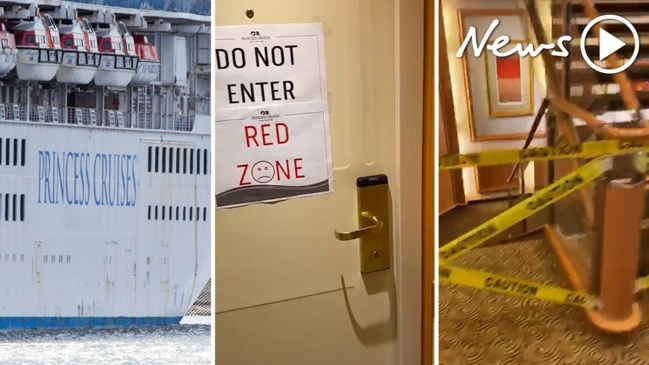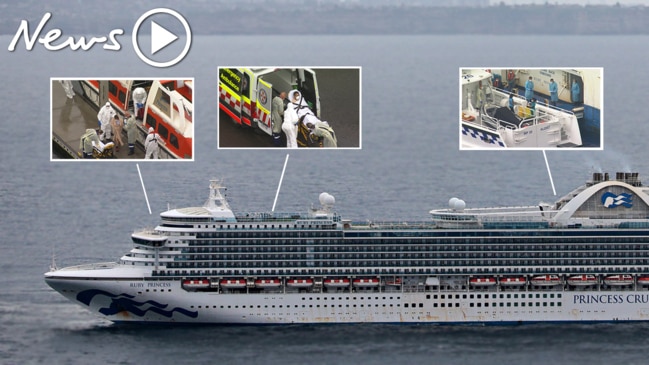Cruise passengers under ‘unfair, unusual’ contracts, court hears
Passengers who cruised on the Covid-ridden Ruby Princess are bound by ‘unfair’ contracts that impede their right to seek damages, a court has heard.
NSW Coronavirus News
Don't miss out on the headlines from NSW Coronavirus News. Followed categories will be added to My News.
Passengers who cruised on the Covid-ridden Ruby Princess are bound by “unfair” and “unusual” contracts impeding their right to seek damages, a barrister has told the Federal Court.
Nurse Susan Karpik, who contracted Covid from the infamous cruise which resulted in 28 deaths, is leading about 900 passengers in a class action seeking damages from Carnival Australia.

Earlier in the proceedings, the defence filed an application to remove some overseas passengers from the class action due to an “exclusive jurisdiction” clause in their contracts favouring US courts for claims of injury, illness or death.
Another clause “unusually” banned customers from taking part in a future class action, meaning they could only sue individually, the court heard.
But barrister Ian Pike SC, acting on behalf of Ms Karpik, told the court on Friday the contracts were unfair to customers.
“The class action waiver clause is extremely unusual, we would say. It’s not in the Australian terms and conditions. It’s not in the UK terms and conditions.
“The effect of it is, you can’t participate in a class action, you have to sue personally,” Mr Pike said.
“There is a benefit to avoid multiplicity in proceedings and a cost-effective way, not only for litigants, but also for the court to determine actions that have common elements.”

Mr Pike referenced a Canadian client who unknowingly agreed to the terms and conditions when his cruise was booked by an agent through Expedia on September 25, 2019.
He said the agent accepted these terms on behalf of the passenger, which were not sent on to him.
“They would need to be brought to the specific attention of the passenger … or clear authority to an agent to accept those conditions,” Mr Pike told the court.
“The exclusive jurisdiction is unusual in circumstances where you have a Canadian national booking with a Canadian agent for a cruise that leaves from Sydney, goes to New Zealand and comes back to Sydney, it is unusual in those circumstances to have an exclusive jurisdiction clause for California. And this is all being viewed from the point of view of the cruise ship passenger, who is not a trained lawyer.”
He also said it was unfair that a Canadian resident should have to sue in the United States.
Carnival lawyer Greg O‘Mahoney told the court it was up to the passenger to familiarise themselves with the terms and conditions of the contract.
He said the Canadian passenger received a confirmation from the Expedia agent, which outlined the particulars in the clause.
The court heard there were 11 individual passengers suing in the US.
Ms Karpik and her husband Henry Karpik allege they were healthy before boarding the Ruby Princess in Sydney on March 8, along with 2600 other passengers.
They allege the cruise line breached its duty of care to protect passengers after more than 600 Australians on board were confirmed to have contracted coronavirus.
The lawsuit was brought on behalf of all surviving passengers or the executers of the estates of passengers who died because of the outbreak, or loved ones who suffered mental harm because they knew an afflicted passenger.





